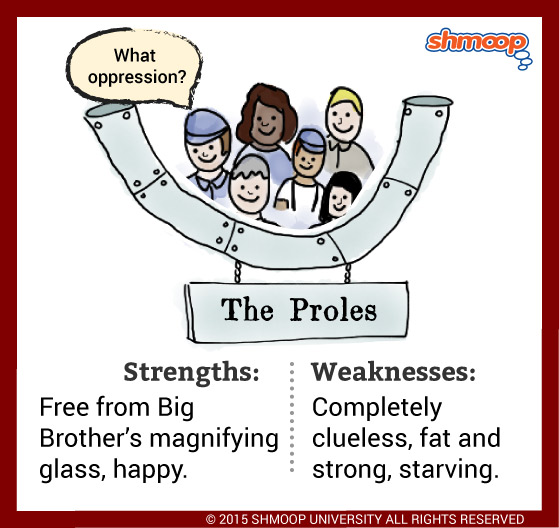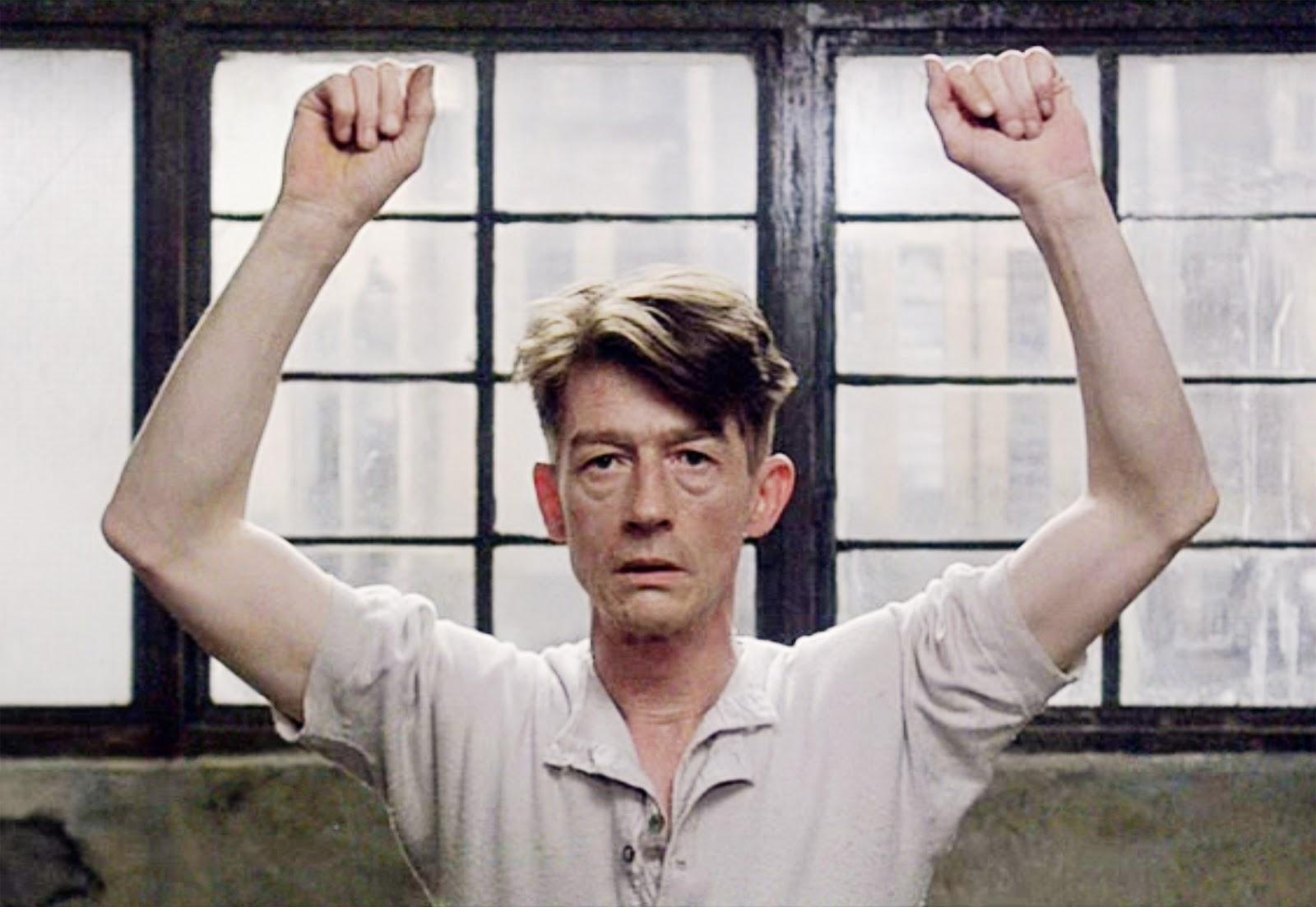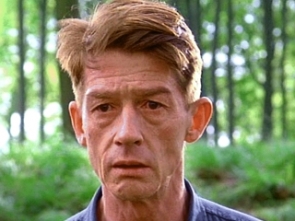

Every time something goes bad or wrong, the Party attributes it to Goldstein - conveniently. Publicly, he is known as a Party enemy, but he actually serves the Party's purposes as a scapegoat. The ultimate symbol of opposition to the Party, we are not sure whether Goldstein actually exists. But since war is peace, freedom is slavery, and ignorance is strength, Big Brother is also a controlling and not remotely brotherly guy.

"Big Brother" should be a nice guy that, even if he gives you wedgies once in a while, still has your back on the playground. Yet, he is also your biggest enemy and threat - if you are one of the criminals (he is watching your every move). The face of the Party, Big Brother acts as reassurance and a trustworthy entity for many (his name is warm and fuzzy and easy to embrace). Maybe the Party just hired an intimidating-looking male model to make those posters. The best part is that we never come to confirm his actual existence. Scared yet? Big Brother is the face of the Party, the leader behind the great power. They also symbolize the tendency of totalitarian governments to abuse technology to further their own ends instead of to improve living standards. With their dual ability to blast Party propaganda and to view and hear the exact goings-on in a room, these telescreens are a visible symbol as well as the direct means of the Party's constant monitoring of its subjects. It's almost as if Winston's chances at recovering the past are shattered, too. Notice a blatant and rather non-subtle artistic device: when the Thought Police come to lead Winston and Julia away, the glass paperweight is shattered on the ground. Clement's Church hanging in the room? Singing the song with Julia? Again, more representations of the past. Same deal with the old man in the bar - yet another attempt to get in touch with history. He buys it as an attempt to reconnect with the past. Not to mention that whole threat-of-torture thing.įortunately, some remnants of the past do remain, and the "useless" paperweight fascinates Winston. Thus, in Oceania, it becomes impossible for people to question the Party's authority. Even your friends give you are "are you crazy?" look when you ask them. Their memories aren't even reliable because, after all, what would you think if you distinctly recall X, but X is nowhere to be found in dictionaries or historical documents. These items are remnants of the past that, because of the Party's control, no longer have any basis in "reality." By surrounding Oceanians with propaganda, party doctrine and contradictory "facts," the people of Oceania no longer have a past. Clement's Church have SYMBOL written all over them. The paperweight, the old man in the prole bar, St. They see her as "beautiful" because of her wideness, largeness, and toughness - all indicating her ability to give birth to future generations of rebels intent on overtaking the Party's rule. Winston and Julia also acknowledge the Prole woman as a symbol of reproductive virility, and thereby, hope for the future. Unfortunately, as Winston and Shmoop note, the proles aren't smart enough to get their act together.


After all, Winston reasons, the Proles constitute the only group capable of success because of their sheer size (85% of Oceania population). What is this hope? That the proles will become cognizant of their plight and rebel against the Party. Party members never sing, but hearing her song through the window of his rented room fills Winston - and soon, Julia - with hope for the future. Winston sees this woman as a symbol of freedom. The result? Ice cream is not so enjoyable anymore. There was a Simpsons episode where Marge tells Bart he can't have vegetables until he finished his ice cream. Which kind of defeats the purpose of vices altogether. Rather, his vices have been assigned to him. Winston's "vices" aren't personal decisions, nor are they small acts of individuality or rebellion. OK, sure, that sounds great - but it's really not that simple. These common vices help Winston check his doubts and paranoia at the door. He smokes cigarettes for a similar reason: to calm himself down. He drinks gin to sedate his paranoia, like that time he downs a shot or two before finally writing in his journal. In Winston's case, it's alcohol and cigarettes. Discontented with his life, Winston turns to vices as a means of escape and self-medication.


 0 kommentar(er)
0 kommentar(er)
